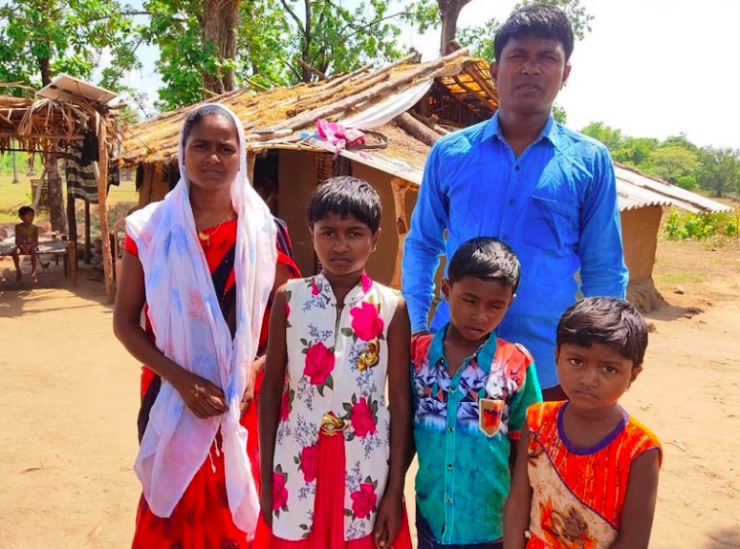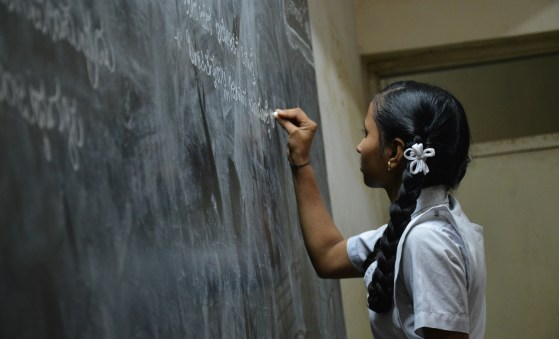
A church planter in Maharashtra was brutally killed by Hindu extremists after suffering years of abuse for his Christian faith amid escalating religious intolerance and violence in the country.
Persecution watchdog International Christian Concern reports that on July 10, unknown Hindu extremists murdered Pastor Munsi Thado, 35, and left his body in the forest near Badpari village in the Godcharoli district of Maharashtra state.
The Hindus reportedly dragged the pastor from his home, ignoring his wife Rajini's pleas for his life to be spared.
In the five years preceding his death, Pastor Munsi lived in the forest near Badpari village due to village pressure. Village leaders angered by Munsi's evangelistic efforts demanded he recant his Christian faith. When the pastor refused to comply with their demands, he was chased out of the village.
Following his ostracism from his community, Munsi, who was part of a Maoist separatist group prior to his conversion to Christianity, continued to evangelize, leading nearly two dozen families to Christ.
"He was killed because of his faith, life, and ministry to the Adivasi people in the area," one of his colleagues told ICC. "He led more than 20 families to Christ in the last five years, ever since he was thrown out the village by some Hindu radicals."
India has roughly 66 million Christians out of a total population of approximately 1.36 billion. The country has seen a steady rise in persecution of Christians over the past decade, according to Open Doors USA, which ranks India the 10th most dangerous place to live as a believer.
Open Doors notes that attacks against Christians are often perpetrated by Hindu nationalists, while converts to Christianity from a Hindu background are "especially vulnerable to persecution and are constantly under pressure to return to Hinduism, especially through campaigns known as Ghar Wapsi ("home-coming")".
Rights groups claim that since the Bharatiya Janata Party, a Hindu nationalist party, won the general election in 2014, Hindu extremists have targeted Christians with immunity.
According to Persecution Relief, which tracks anti-Christian persecution and harassment in India, crimes against Christians in India increased 60% between 2016 and 2019. The nonprofit found that between January 2016 and June 2020, there were 2,067 crimes inspired by religious intolerance against Christians in India.
Eight out of 29 states in India have passed strict "anti-conversion" laws to prevent any person from converting or attempting to convert, either directly or otherwise, another person through "forcible" or "fraudulent" means, or by "allurement" or "inducement."
Penalties for breaching the laws can range from monetary fines to imprisonment. Rights groups have warned that such laws are often used to discriminate against religious minorities or to justify extrajudicial killing.
Last month, Pastor Prasanna Kumar was attacked and brutally beaten by a mob of radical Hindu nationalists as he returned home from a prayer meeting in Bikampur village, located in the Bareilly district of Uttar Pradesh. The radicals accused the pastor of forcefully converting Hindus to Christianity.
Last week, 14 U.S. Senators signed a letter asking Secretary of State Mike Pompeo to consider the U.S. Commission for International Religious Freedom's recommendation to designate India a Country of Particular Concern.
In the letter, primarily endorsed by the Coalition to Stop Genocide in India, the senators demanded that "targeted sanctions" be imposed against Indian agencies and officials responsible for escalating religious intolerance and violence.
"There is strong bipartisan Congressional support for holding India accountable for its escalating violence against its principal minorities, the Muslims and Christians," the Coalition to Stop Genocide in India explained. "The U.S. Government must designate India a CPC."
Courtesy of The Christian Post.




